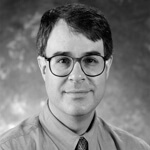
San Antonio (Dec. 6, 2004) – Hypertrophic cardiomyopathy (HCM) might not be a household term, but mention the name Hank Gathers to sports fans and some will remember the promising young Loyola Marymount star who collapsed on the basketball court more than a decade ago and died at age 23. He was found to have HCM, a condition caused by abnormality of the genes that code for development of the heart muscle. HCM is marked by abnormal thickening (hypertrophy) of the left ventricle and/or the septum, the wall between ventricles. In the most severe cases, potentially deadly irregular heartbeat comes without warning.
The Hypertrophic Cardiomyopathy Clinic at The University of Texas Health Science Center at San Antonio is an important resource to individuals with HCM. “HCM is the most common genetic cardiovascular disease, and even though symptoms can vary, from shortness of breath, chest pressure and fainting to stroke and congestive heart failure, life doesn’t have to be over because of a diagnosis of HCM,” said clinic director Marc D. Feldman, M.D., associate professor of medicine in the division of cardiology and associate director of the Cardiac Catheterization Laboratory at University Hospital. Dr. Feldman also is affiliated with the South Texas Veterans Health Care System.
The HCM Clinic is a place to determine clinical course of action, prognosis and treatment options for each patient. Treatments include medications, surgery, pacemaker implantation or alcohol septal ablation. “We also provide guidance to other physicians in how to manage patients during non-cardiac surgery and pregnancy,” Dr. Feldman said.
One of the most interesting treatment options is alcohol septal ablation, which is offered after medication fails to control arrhythmias and other HCM symptoms. “This is a special heart catheterization procedure in which an alcohol solution is injected directly into a small branch of the coronary arteries,” Dr. Feldman said. “This causes a localized heart attack in the overgrown heart muscle responsible for the symptoms of HCM. As a result, the muscle size is reduced. This new treatment can be helpful to patients with HCM.”
The HCM Clinic, which is described on the Web at http://cardiology.uthscsa.edu/hcm/, recently was listed on the Hypertrophic Cardiomyopathy Association’s national Web site. Patients are referred from throughout Texas and the United States. “We want people to be aware that we are here to help HCM patients and their families,” Dr. Feldman said.
The clinic represents a team approach. HCM Clinic faculty physicians from the Health Science Center’s department of surgery are A.J. Carpenter, M.D., Ph.D., associate professor, and John Calhoon, M.D., professor and holder of the Calhoon President’s Council Chair for Excellence in Surgery. Drs. Carpenter and Calhoon evaluate patients for surgical myectomy, an open-heart operation in which heart muscle is removed to provide long-term relief from the disease.
Associate professors Alexis Fenton, M.D.; John Erikson, M.D., Ph.D.; and Janet Hays, M.D., three colleagues of Dr. Feldman in the division of cardiology, also serve on the HCM Clinic faculty. Dr. Fenton specializes in cardiac electrophysiology and implantation of specialized cardiac devices such as automatic implantable cardiac defibrillators that fire in the event the heart stops. Drs. Erikson and Hays both perform transesophageal echocardiography, a method of imaging the heart through the esophagus, and transthoracic echocardiography, images taken from outside the chest.
Few estimates exist, but HCM is thought to affect an estimated 1 in 500 people.

